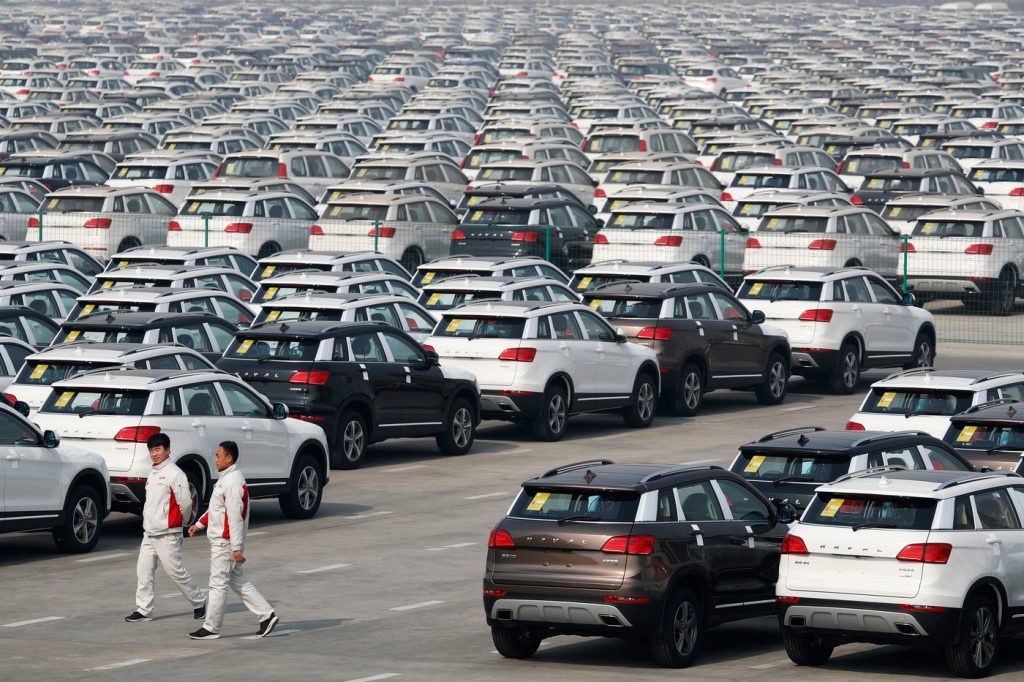BANGKOK (AP) – China's passenger car sales experienced a slowdown in October, particularly impacting electric vehicle manufacturers like BYD and Tesla, as automakers engaged in price reductions to remain competitive in an overcrowded market, according to the China Association of Automobile Manufacturers (CAAM). Sales saw a year-on-year growth of 4.4% in October, a noticeable decrease from the 11.2% increase recorded in September and a significant drop from the 15.1% surge in August. However, the exports of electric vehicles (EVs) and plug-in hybrids saw a remarkable doubling compared to the previous year, reaching approximately 250,000 units as manufacturers expanded their reach into international markets.
The vehicle sales in China, the world’s largest automotive market, had seen a boost in recent years linked to government trade-in programs aimed at encouraging drivers to switch to electric vehicles. Recently, several Chinese cities and provinces have been reducing trade-in subsidies, leading to uncertainty regarding the continuation of these significant incentives in the upcoming year. Additionally, there are expectations that China's tax exemption for electric and hybrid vehicles will be halved starting next year, which could further impact sales.
Specifically, Tesla faced a significant decline in its sales within China, reporting a decrease of nearly 36% in October compared to the same month in the previous year, with sales dropping to 26,006 vehicles from 71,525 units sold in September, as per the China Passenger Car Association (CPCA). BYD also registered an overall decline in sales, dropping by nearly 12% year-on-year to 441,706 units. This drop is attributed to BYD’s strategic expansion into overseas markets, including the UK, aimed at countering the diminishing demand in China due to fierce competition from local rivals.
The reduction of trade-in subsidies in specific regions of China has contributed to the slowdown in domestic sales, as indicated by Claire Yuan, the director of corporate ratings for China autos at S&P Global Ratings. She expressed that even if subsidies are extended, their impact on car sales is likely to be less pronounced, with projections indicating a decline in domestic passenger and light commercial vehicle sales by 2026. Analysts also pointed out that the continuous intense market competition and a prolonged oversupply of vehicles will keep prices for car models depressed.
BYD's market share in China has diminished as competitors such as Geely, Leapmotor, and XPeng have been gradually increasing their share in the market. Despite the challenges faced domestically, the exports of Chinese electric vehicles continue to rise as manufacturers increasingly turn their attention to international markets, including Europe and Southeast Asia.
According to estimates from the consultancy AlixPartners, Chinese car brands are projected to comprise approximately 30% of the global vehicle market by 2030, up from 21% in the previous year. This growth reflects the ongoing expansion and ambition of Chinese automakers in the global automotive industry.











